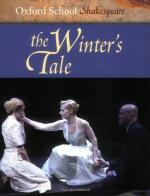|
This section contains 8,413 words (approx. 29 pages at 300 words per page) |

|
SOURCE: Schwartz, Murray M. “Leontes' Jealousy in The Winter's Tale.” American Imago 30, no. 3 (fall 1973): 250-73.
In the following essay, Schwartz offers a psychological explanation of the sources and motivations for Leontes's jealousy in The Winter's Tale.
Fatum est in partibus illis quas sinus abscondit.
Juvenal
Criticism of The Winter's Tale discloses an almost uniform denial of significant motivation in the representation of Leontes' jealousy. Norman Holland (in his pre-psychoanalytic criticism) writes: “In fact, [Shakespeare] is really quite perfunctory about the source of trouble; he doesn't even bother to motivate Leontes' jealousy.”1 Frank Kermode thinks that “Shakespeare removes Leontes' motives for jealousy.”2 G. W. Knight, committed to theological notions of Shakespeare's divine inspiration, says “His evil is self-born and unmotivated.”3 A. D. Nutall, to my mind the play's most responsive critic, courts “Freudian” suggestions in the text but tactfully avoids a psychoanalytic reading of Leontes' delusions.4 J. H. P...
|
This section contains 8,413 words (approx. 29 pages at 300 words per page) |

|


